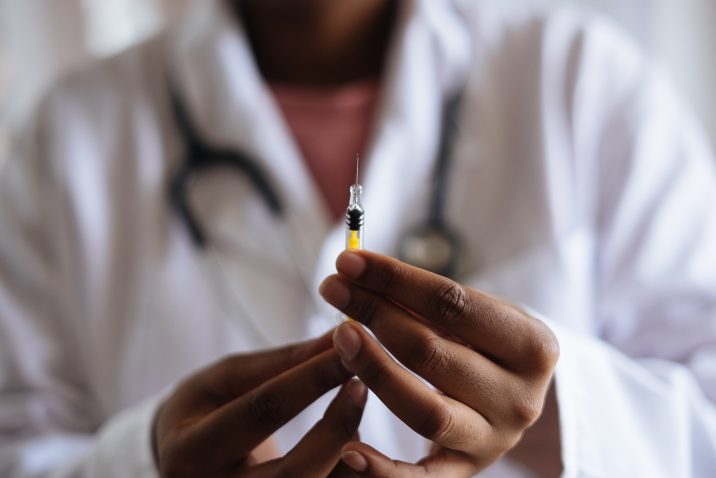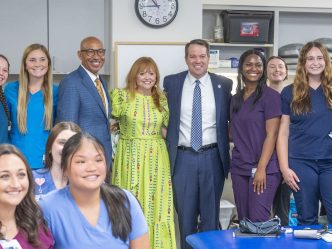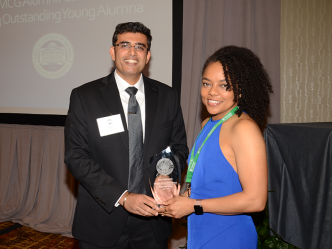Black Americans have been contracting and dying from the coronavirus at rates higher than any other racial or ethnic group in the country, according to the Centers for Disease Control and Prevention. Despite these alarming statistics, a new report from the Kaiser Family Foundation found that nearly 35% of Black adults are not planning to get the COVID-19 vaccine.
How can America’s public health leaders address this hesitancy? Dr. Justin X. Moore, an epidemiologist in the Department of Population Health Sciences at the Medical College of Georgia, says it all begins with acknowledging the historical reasons many Black Americans mistrust medicine.
“To the Black community, there has been a long history of untrustworthy behavior by health care systems, and their distrust that stems from experiences based on the discrimination Black Americans oftentimes face in health care and in every aspect of society,” said Moore. “To overcome this barrier, health care workers must be empathetic and listen to their patients’ concerns.”
Moore has not only studied the coronavirus’ impact on Georgia’s rural communities, but he has also become an advocate for the COVID-19 vaccine. Moore received his first round of the Pfizer COVID-19 vaccine at AU Health in December and says he has experienced little to no side effects.
“I received my first dose of the COVID-19 vaccine on Dec. 31, and I’ll get my second shot on Thursday, Jan. 21,” said Moore. “My experience has been good and I only experienced slight discomfort at the injection site for a day or so.”
To help shed more light on the benefits of getting vaccinated for the coronavirus, Moore answered some of our patients’ top questions about the COVID-19 vaccine.
Is the COVID-19 vaccine safe?
The vaccine is safe and was provided emergency authorization by the U.S. Food and Drug Administration. I strongly recommend you getting vaccinated, because it will help lower your chances of getting COVID-19. If you still get infected after you get vaccinated, the vaccine may prevent serious illness. By getting vaccinated, you can also help protect people around you.
Can the vaccine give me COVID-19?
None of the vaccines authorized for use or development in the United States uses the live virus that causes the coronavirus. However, it can take the body up to a few weeks to build immunity after vaccination. So, there is still a chance for you to become infected with the coronavirus just before or right after getting vaccinated.
What are the immediate reactions to the COVID-19 vaccine?
Sometimes after vaccination, the process of building immunity can cause symptoms, such as fever, headache and fatigue. These symptoms are normal and are a sign that the body is building immunity. However, seek medical attention if side effects are worrying you or do not seem to be going away after a few days.
If you had COVID-19 illness, should you still get the vaccine?
Yes. The Centers for Disease Control and Prevention recommends that you get vaccinated even if you have already had COVID-19, because you can catch it more than once. While you may have some short-term antibody protection after recovering from the coronavirus, there is still no proof on how long this protection will last.
Where can I go for the COVID-19 vaccine?
If you live in the Augusta area, visit the Georgia Department of Public Health to find a COVID-19 vaccination site. The list is updated frequently and additional locations will be added when providers are ready to safely to administer the vaccine in phases.
Augusta University President Brooks A. Keel, PhD, will host a virtual town hall at 3 p.m. Friday, Jan. 22. He will provide updated information for faculty, staff and students regarding COVID-19 and the vaccine. Access the livestream here, and view the latest information, updated protocols and statistics for the campus on our COVID-19 resource page.
 Augusta University
Augusta University





